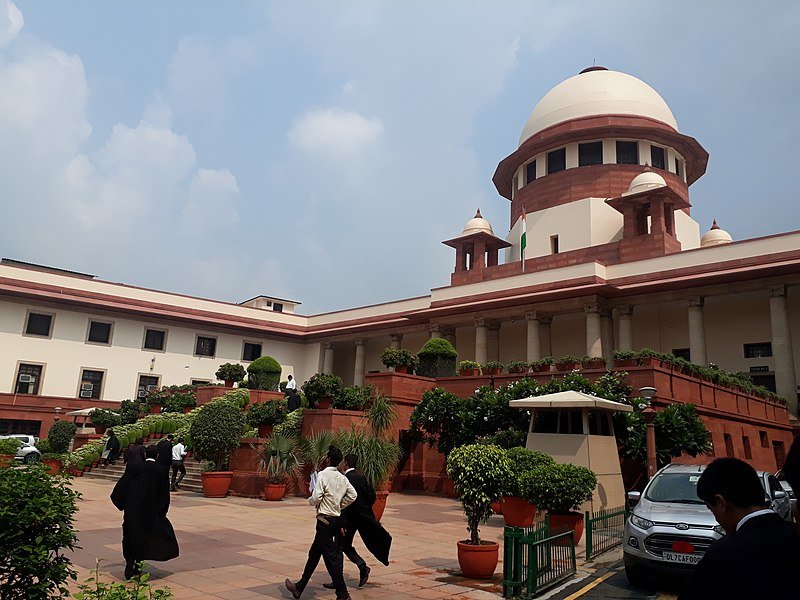Innocent until proven guilty beyond reasonable doubt is the general legal principle adopted by courts in India. The Supreme Court has now ruled that there shall be no such presumption of innocence once a person is convicted by a trial court.
“Once the accused has been convicted by the learned trial court, there shall not be any presumption of innocence thereafter,” a bench of Justices D Y Chandrachud and M R Shah said on Tuesday. It asked High Courts to be “very slow in granting bail to the accused pending appeal who are convicted” of the serious offences such as murder.
The court ruling took place due to an appeal filed by a woman from Uttar Pradesh, Shakuntala Shukla, who challenged the bail granted by Allahabad High Court to four men convicted of murdering her husband, Kripa Shankar Shukla, during the pendency of their appeals against conviction.
The court set aside the High Court order granting them bail and asked the convicts to surrender.
Writing for the bench, Justice Shah also noted that “the order granting bail to the accused pending appeal lacks total clarity on which part of the judgment and order can be said to be submissions and which part can be said to be the findings/reasonings”.
He then went on to elucidate the importance of judgment and how it should be written. Every judgment, the bench pointed out, contains four basic elements – statement of material (relevant) facts, legal issues or questions, deliberation to reach a decision and the ratio or conclusive decision.
“A judgment should be coherent, systematic and logically organised. It should enable the reader to trace the fact to a logical conclusion on the basis of legal principles,” said the court.
The court set aside the High Court order granting them bail and asked the convicts to surrender. (Bloomberg)
Innocent until proven guilty beyond reasonable doubt is the general legal principle adopted by courts in India. The Supreme Court has now ruled that there shall be no such presumption of innocence once a person is convicted by a trial court.
“Once the accused has been convicted by the learned trial court, there shall not be any presumption of innocence thereafter,” a bench of Justices D Y Chandrachud and M R Shah said on Tuesday. It asked High Courts to be “very slow in granting bail to the accused pending appeal who are convicted” of the serious offences such as murder.
The court ruling took place due to an appeal filed by a woman from Uttar Pradesh, Shakuntala Shukla, who challenged the bail granted by Allahabad High Court to four men convicted of murdering her husband, Kripa Shankar Shukla, during the pendency of their appeals against conviction.
The court set aside the High Court order granting them bail and asked the convicts to surrender.
Writing for the bench, Justice Shah also noted that “the order granting bail to the accused pending appeal lacks total clarity on which part of the judgment and order can be said to be submissions and which part can be said to be the findings/reasonings”.
He then went on to elucidate the importance of judgment and how it should be written. Every judgment, the bench pointed out, contains four basic elements – statement of material (relevant) facts, legal issues or questions, deliberation to reach a decision and the ratio or conclusive decision.
“A judgment should be coherent, systematic and logically organised. It should enable the reader to trace the fact to a logical conclusion on the basis of legal principles,” said the court.
“A judgment has to formulate findings of fact, it has to decide what the relevant principles of law are, and it has to apply those legal principles to the facts… The judgment replicates the individuality of the judge and, therefore, it should be written with care and caution,” Justice Shah pointed out.
“The reasoning in the judgment should be comprehensible and logical. Clarity and precision should be the goal. All conclusions should be supported by reasons duly recorded. The findings and directions should be precise and specific,” the bench said.

























